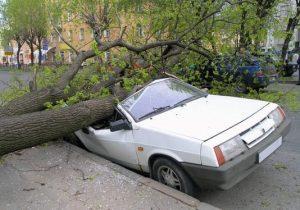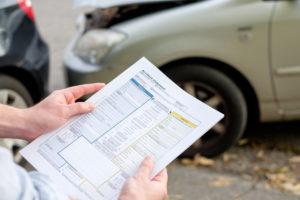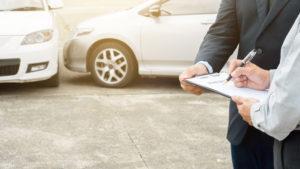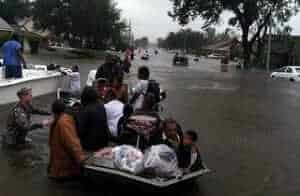
There is nothing more frustrating than dealing with an insurance company. The situation is even more frustrating if you have been injured in a motor vehicle accident that was not your fault. This may even be true if you are trying to file a claim based on your own insurance coverage—namely your “full coverage” policies—following a crash.
Insurance companies often treat car accident victims as a nuisance or a number. They seem to delay every decision in hopes that you will simply give up and not proceed with your claim to recover compensation.
Even when dealing with your own insurance company following an accident, this is true. Your insurer may act like they do not want to or cannot compensate you despite “full coverage” insurance. Read on to learn why.
What does “Full Coverage” Mean?
One question clients have asked over the years concerns “full coverage.” In other words, a client will say “I had full coverage on my car at the time of the accident, so why am I not being paid?” Occasionally, a misunderstanding can arise over what “full coverage” actually means and what the policy covers.
Clients have told us they had full coverage when they only had the minimum coverage required by law. However, minimum coverage often varies from state to state. In other words, different states have different requirements for minimum insurance requirements. The only constant is that minimum coverage will include both liability coverage and property.
For a free legal consultation, call 800-537-8185
Liability Is Not Full Coverage
Liability coverage is typically included in all insurance policies. It protects you from having to pay out of your pocket for damage you cause to others or property as a result of an accident for which you are at fault. Typically, the liability coverage in an auto insurance policy will contain three limits:
- The maximum payment for bodily injury per person
- The maximum payable for bodily injury per accident
- The maximum payable for property damage
For example, in Alabama the minimum requirement for automobile insurance is as follows: you must have liability insurance to help pay for any damages or injuries you may cause to others in a car accident. Your liability coverage must include the following minimums:
- $25,000 for bodily injury or death per person
- $50,000 total for bodily injury or death per accident
- $25,000.00 for property damage
This means that all Alabama drivers must purchase and maintain a policy of insurance if they are at fault in accidents. This minimum policy will pay $25,000 per person and up to $50,000 per accident no matter how many people are injured. This does not include the $25,000 minimum required for property damage (vehicle repairs).
Attorney Morris Bart and his team represent clients all over Alabama, Mississippi, Arkansas, and Louisiana. Except for Louisiana, these states are all similar to Alabama. They require that each owner/operator of a vehicle have an insurance policy with at least $25,000 per person for bodily injury and $50,000 per accident for bodily injury. A minimum of $25,000 is also required for property damage.
In other words, in these states, if you are injured in an automobile accident that is not your fault, the law requires the negligent driver’s coverage to help you. This would pay for damage to your property (this is called property damage liability) or costs associated with your injuries (bodily injury liability).
The Morris Bart law firm also has offices all over Louisiana. According to the Louisiana Department of Insurance, that state only requires a 15/30/25 policy. Minimum liability insurance limits are different in Louisiana, where the minimum requirement is $15,000 limit per person, $30,000 limit per accident and $25,000.00 for property damage.
In contrast, Texas requires that each owner/operator of a vehicle maintain at least $30,000.00 in limits per person and $60,000.00 per accident. The minimum for property damage liability in Texas is $25,000.00.
Liability coverage typically does not cover damage to your own car or costs associated with your own injuries from an accident if you are at fault.
Full Coverage Insurance does Not Cover Everything
When people use the term “full coverage,” they are usually referring to liability, collision, and comprehensive coverage. As stated earlier, the term “full coverage” is often misleading. This is because the insurance does not cover everything in full. In other words, there is no such thing as “full coverage.”
To state it another way, “full coverage” isn’t a coverage in itself. It’s a phrase generally used to designate much coverage that provides a good amount of protection: specifically liability, comprehensive, and collision coverages.
Liability insurance is what we just discussed. It protects you from damage you cause to others, or to property as a result of an accident for which you are at fault (or protects you if you are injured in an accident that is not your fault).
Collision Coverage
Collision coverage typically pays for damage to your vehicle if it is involved in an accident or collision with another vehicle or if it hits an object such as something in the road or even a tree. It generally applies to any accident when the car was in motion or another car in motion collided with the vehicle.
To use collision coverage, you will likely need to pay a deductible. Your insurance company may pay for your car repairs and then try to recover their expenses and your deductible from the at-fault driver’s insurer through a process known as subrogation.
Comprehensive Coverage
Comprehensive coverage is designed to cover vandalism, theft, and other damages that do not result from an accident. It typically also includes damage from storms and natural disasters, such as a hurricane or a tornado.
What Isn’t Covered By Your “Full Coverage Policies
Your auto insurance company might not pay for your expenses because you have medical bills and lost wages. The policies do not cover these generally considered “full coverage.” Your liability policy only pays for the harm you caused to others, so you will need to file a claim against the at-fault driver to recover money damages for your injuries, lost wages, and other related losses.
Alternatives include:
- Filing a claim based on a personal injury protection (PIP) policy if these are sold in your state
- Using your own medical payments coverage if you opted in
- Filing a claim with your health insurance company if you have no other options
Click to contact our personal injury lawyers today
There Are Many Other Types of Coverage Available
While “full coverage” may give you the impression that you have all the insurance policies available, this is far from the truth. You may want to consider these additional policies if you do not already have them. They could help you recover compensation after a crash.
Uninsured Motorist Coverage
Many drivers on the road ignore the minimum requirements and have no insurance at all. If you are injured by a driver with no insurance and are looking for insurance to pay for the damages, uninsured motorist coverage is the avenue through which you can receive compensation.
Uninsured motorist coverage (UM) helps pay for bodily injury and property damage caused by drivers with no insurance. Uninsured motorist coverage typically extends to anyone you allow to drive your car and anyone riding in a car you are driving but do not own.
In other words, if you do not have this coverage and are in an accident with an uninsured driver that does not have the money to compensate you, you will have to pay all of your expenses out of pocket. Twenty states, plus the District of Columbia, require that drivers maintain some form of UM coverage.
Underinsured Motorist Coverage
Underinsured motorist coverage (UIM), on the other hand, comes into play if you are injured by a motorist whose liability limits are too low to pay for all of your damages or medical expenses. Only five states (Connecticut, Maine, Minnesota, North Carolina, and Vermont) make it a legal requirement to maintain UIM coverage.
Medical Payments
Medical payments coverage will cover your medical costs (up to the amount you select) after a car accident, even if you were at fault. Medical payment coverage can also cover you or a family member who is hit by a car while riding a bike or walking in a crosswalk. It can even cover medical bills if you were injured in someone else’s car.
Repairs and Related Help
Rental reimbursement is insurance coverage that will cover your rental costs if you are in an accident that causes your vehicle to need repairs. Emergency road service will pay for costs if your vehicle breaks down on the road and you need towing or labor.
Customized parts and equipment coverage will help with the cost of damages to your car if you have enhanced your vehicle with expensive equipment or custom parts.
Gap Insurance
Finally, if your car is totaled in an accident, gap insurance comes into play. This coverage helps pay the balance between the amount you owe on your loan or lease and your vehicle’s estimated actual cash value.
What This Means for You
All of this means that although a driver may think he or she has “full coverage,” there are many instances in which a policy may not cover the full amount of damages resulting from a motor vehicle accident. If you caused a crash, you might not have options for medical care coverage, even if you have “full coverage” insurance, for example.
Louisiana, Mississippi, Arkansas, and Alabama are all fault-based states for car accidents. This means the at-fault party must pay for the victims’ expenses. In many cases, you will need to pursue a fault-based insurance claim or civil suit to hold the negligent driver responsible and recover appropriate damages.
The best way to ensure that you receive everything you deserve after being injured in an accident is to make sure you have an experienced attorney on your side. Working with a car collision lawyer can allow you to continue your treatment and healing while someone else—someone with experience in handling these claims—deals with the insurance companies, at-fault drivers, and the court system, if necessary.
Speak to a Lawyer from Morris Bart, LLC for Free Today
The Morris Bart law firm attorneys understand the different types of coverages. We will work tirelessly to ensure that you do as well to focus on healing physically and emotionally. Our attorneys strive to aggressively maximize your recovery.
The Morris Bart law firm can help you recover compensation from the types of coverages we have discussed, plus lost wages, and much more. The important thing to remember is that the longer you wait to call the Morris Bart law office near you, the harder it can be for you to be fairly compensated.
The best thing to do is speak to an attorney right away and know there is never any cost to you for a consultation. Call and speak to a car accident lawyer now at (800) 537-8185.
Questions?Call 800-537-8185
to find a Morris Bart office near you.





